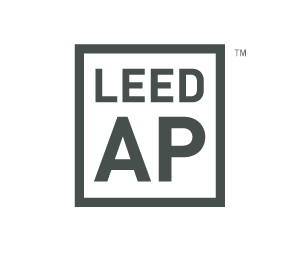I am led by the article to attend to anonymous complaints. And I tend to agree that anonymity in accusations sounds cowardly. If I were accused that way and I felt I were innocent then I would think it was a vendetta.
But, after all, this is about LEED AP. Most building owners don't need LEED certification to benefit from the procedures and values that LEED has popularized. So, the real query is, "How long will LEED be nothing more than bragging rights and self promotion?"
Blog Post
Closing date announced for LEED AP exam registration, and the disciplinary policy!

- Abide by laws related to the profession and to general public health and safety.
- Carry out their professional work in a competent and objective manner.
Persons concerned with possible violation of GBCI rules are encouraged to contact GBCI. The person should submit a written statement identifying the persons alleged to be involved and the facts concerning the alleged conduct in detail, and the statement should be accompanied by any available documentation. The statement should also identify others who may have knowledge of the facts and circumstances concerning the alleged conduct. The person making the complaint should identify him-/herself by name, address and telephone number. However, GBCI will consider anonymous complaints.Is this a good policy? Does it go far enough toward establishing a green "standard of care"? Read it here and let us know what you think.
Published December 29, 2008 Permalink Citation
(2008, December 29). Closing date announced for LEED AP exam registration, and the disciplinary policy!. Retrieved from https://www.buildinggreen.com/blog/closing-date-announced-leed-ap-exam-registration-and-disciplinary-policy
Comments
I am led by the article to at
Once again there is evidence
Once again there is evidence of a struggle for control that these organizations need to survive. The problem is that there is an exclusionary attitude from programs such as LEED. It is important to have watchdogs to make sure of compliance to the standards of LEED, but as Mr Coker stated in the previous comment, "is it only for bragging rights." At this point in time there is not a large inventory of LEED accredited projects compared to non-LEED accredited projects from which an individual can gain experience. So lies the exclusivity issue. The professionals who have experience should be promoting others to take the exam. Instead, when the standards for taking the examination change, an exclusive group of "already accredited LEED professionals" will be established and the door will be closed to those who qualify, but have not directly worked on an existing project. Those that philosophically and intellectually support the Green Movement in the building sector but are not one of the "chosen few" will have nowhere to turn. Sounds a bit "corporate" and definitely exclusive to me. One way to promote more commercial and residential projects is to have more accredited people practicing the philosophy. More accredited people refreshes the intellectual environment and prevents the stagnation that organizations like this eventually display. We as a world community are on the brink of major change in the environmental philosophy. More people have become knowledgeable regarding Climate Change and Global Warming and the effects that the commercial and residential building sectors have on these issues. Many of us have practiced these philosophies since the Carter Administration. But many of us are not part of that exclusive LEED group of professionals. Where do we and all those that we have influenced fit in? I am a residential design/build contractor who has been involved in passive solar architecture and energy efficient construction for 30 years. I am also a licensed Building Official with the State of Connecticut since 1990. I have been a member of NESEA, as well as other local environmental organizations for a very long time. Now that LEED has addressed residential building standards and provides accreditation for residential designers and builders, maybe we will see a movement toward the inclusion of all interested and qualified people who support the green building movement, not just the "chosen few."
Edward J. Palma, SUNBUILDERS, Branford CT



Add new comment
To post a comment, you need to register for a BuildingGreen Basic membership (free) or login to your existing profile.